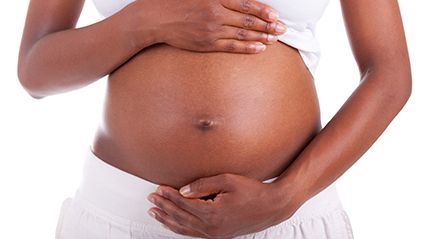THURSDAY, April 1, 2021 (HealthDayNews) — The ripple effect of the COVID-19 scourge has led to more complications among pregnant women worldwide, including an increase in stillbirths, a new study says.
The research review also found higher rates of maternal deaths and depression in the first year of the pandemic.
“The COVID-19 pandemic has had a profound impact on health care systems around the world. Disruption to services, nationwide lockdowns, and fear of attending health care facilities mean that the adverse effects of COVID-19 are expected to have health consequences that extend beyond the deaths and disease caused by the virus itself,” said study lead author Dr. Asma Khalil, a professor at St. George’s University of London.
Khalil’s team reviewed 40 studies that included data on 6 million pregnancies in 17 countries. The studies, which assessed the collateral impact of the pandemic, were published between Jan. 1, 2020 and Jan. 8, 2021.
Overall, there was a 28% increase in the odds of stillbirth, which is the loss of the fetus after 20 weeks, and the risk of mothers dying during pregnancy or childbirth increased by about one-third.
Also, there was a nearly sixfold increase in surgery for ectopic pregnancies (when the fertilized egg is growing outside the uterus) during the pandemic. If discovered early, ectopic pregnancies are typically treated with medication. The increase in ectopic pregnancy surgery suggests that more women delayed seeking care, according to the researchers.
They also found increases in mothers’ postpartum depression and anxiety.
Pregnancy outcomes were worse in low- and middle-income countries than in high-income countries, according to the study. The results were published March 31 in The Lancet Global Health.
The findings show the need for immediate action to maintain safe pregnancy care worldwide, especially during the pandemic, the researchers said.
“It is clear from our study and others that the disruption caused by the pandemic has led to the avoidable deaths of both mothers and babies, especially in low- and middle-income countries,” Khalil said in a journal news release. “We urge policymakers and health care leaders to prioritize safe, accessible, and equitable maternity care within the strategic response to the pandemic and aftermath, to reduce adverse pregnancy outcomes worldwide.”
The researchers also found a 10% decline in preterm births in wealthy nations, but no change in low- and middle-income countries.
The reduction in wealthy nations appears to be due to a drop in spontaneous preterm births, rather than those requiring medically indicated early induction of labor or cesarean section, according to the researchers.
They said this means it’s likely that changes in health care delivery and population behaviors are contributing factors.
Study co-author Dr. Erkan Kalafat, of Koc University in Turkey, said these pandemic-related changes provide important information.
“We have an unprecedented opportunity to learn from the experiences of the COVID-19 pandemic to plan for a future of inclusive and equitable maternity care worldwide,” Kalafat said in the release.
More information
The U.S. Centers for Disease Control and Prevention has more on pregnancy and COVID-19.
SOURCE: The Lancet Global Health, news release, March 31, 2021
Copyright © 2026 HealthDay. All rights reserved.

